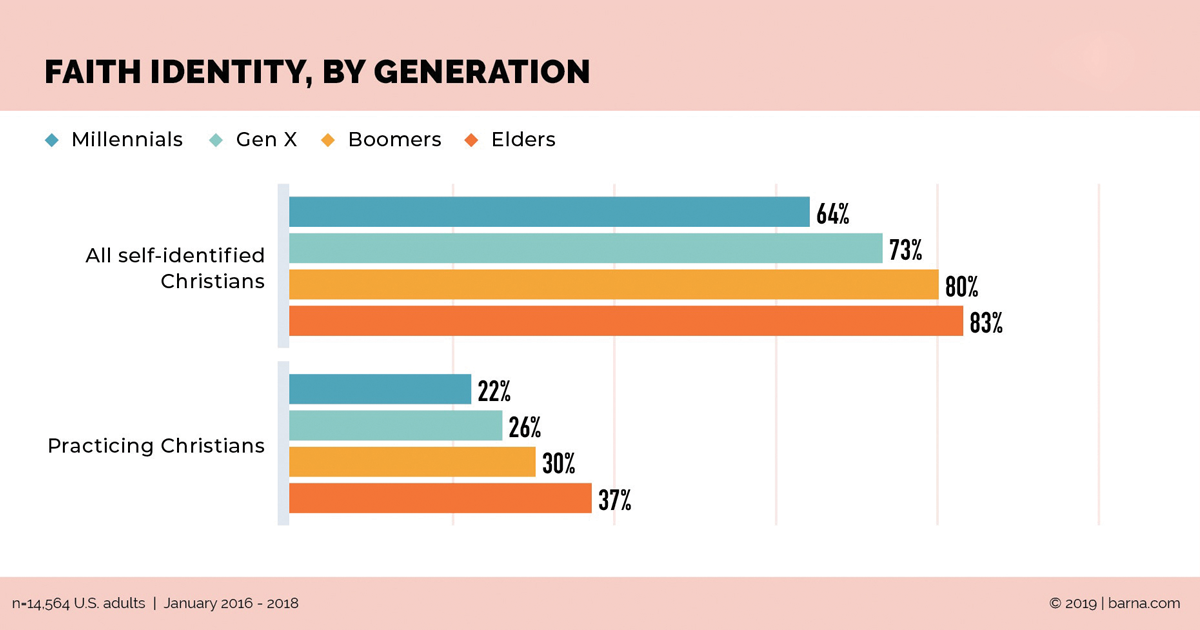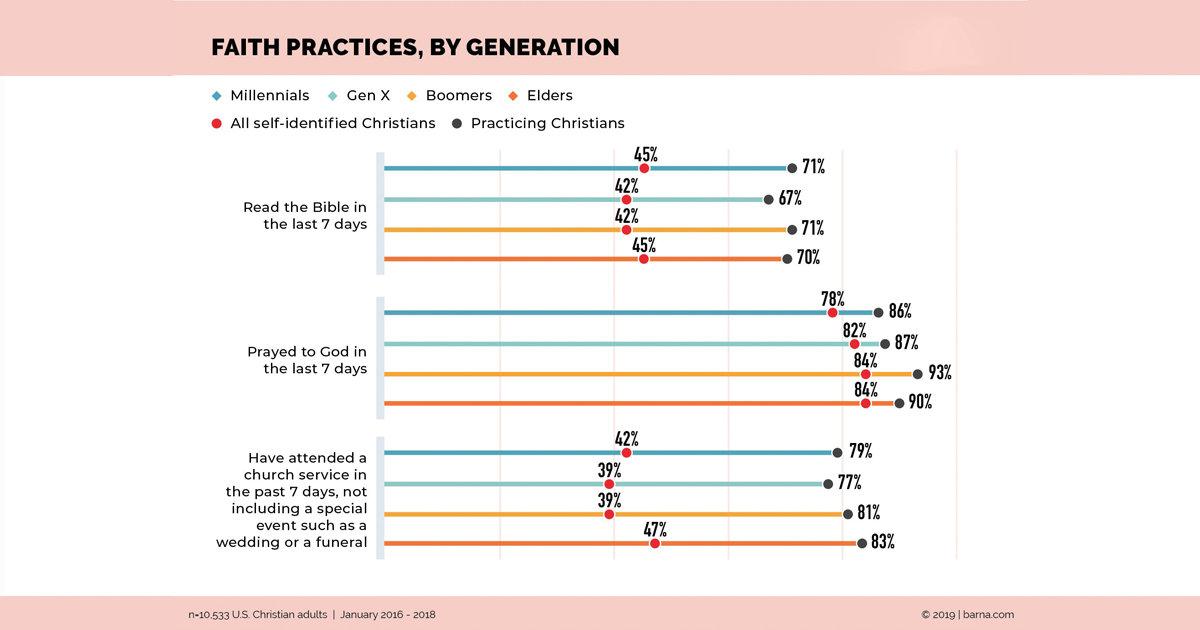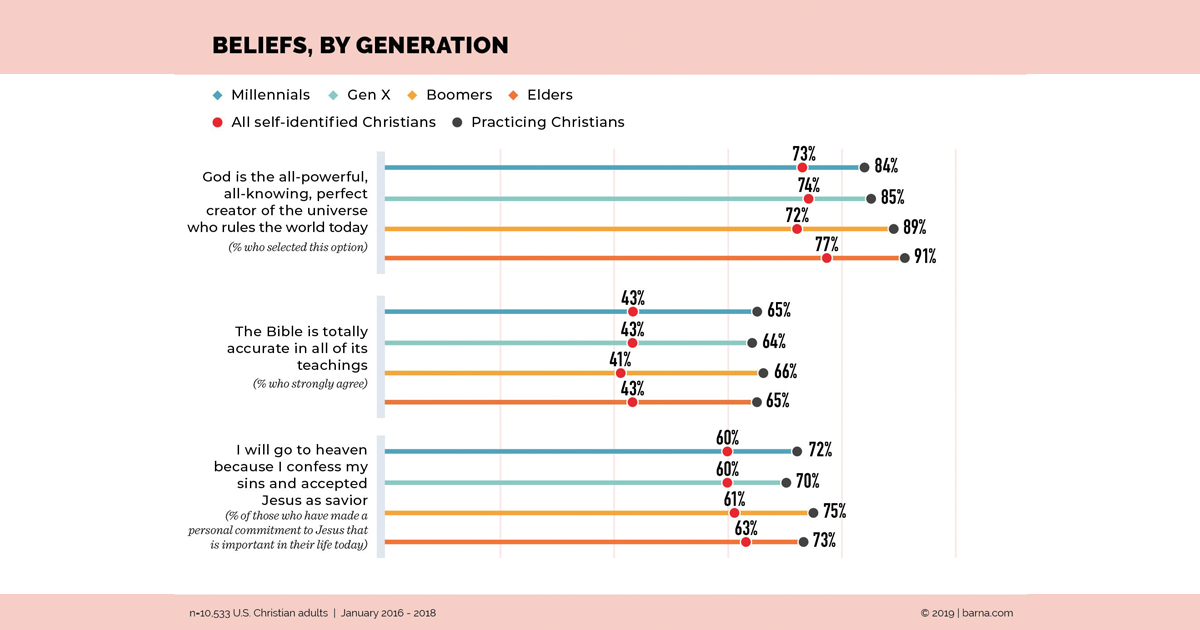How Do Core Metrics of Faith Look by Generation?
How do core metrics of faith look by generation? Check out this research by the Barna Group and find out.
Despite decreasing rates of religious affiliation in the midst of a broader pattern of secularization, we see that both younger and older generations similarly connect to their faith through certain tenets and disciplines. Research by the Barna Group concludes that overall, Christians who practice their faith do so in a remarkably similar fashion, regardless of their generation. And though, as other Barna data note, few Christian Millennials today are willing to share their faith with others (and in fact think it’s wrong to do so), their level of belief and practice is mostly on par with other generations.

Elders are the most likely generation of U.S. adults to self-identify as Christian (83%). This trends downward as we move through the generations: Boomers are close behind (80%), followed by Gen X (73%) and a big drop among Millennials (64%). The same is true among the more committed category of practicing Christians.
Accordingly, we see an overall 9% difference between Christian Elders (66%) who strongly agree that their religious faith is very important in their life and Millennials (57%) who say the same. Self-identified Christians who attend church every month and say their faith is very important in their lives). Almost 4 in 10 Elders (37%) practice their faith in this way, again trending down from Boomers (30%) to Gen X (26%) and Millennials (22%).

Christians of all ages report high participation in prayer (perhaps not a surprise given that the “spiritual but not religious” are a fast growing group in America today and prayer is an accessible, less institutionally mediated faith practice). Among self-identified Christians overall, Elders and Boomers lead in reporting a weekly habit of prayer (84% each), followed by Gen X (82%) and Millennials (78%). The same trend plays out for practicing Christians, with the highest participation among Boomers and Elders and slightly lower rates for the younger generations.
Considering the orthodox view of God as “the all-powerful, all-knowing, perfect creator of the universe who rules the world today,” around three-quarters of all self-identified Christians believe this to be true. For practicing Christians, more than 9 in 10 Elders see God in this way, a proportion that lowers slightly down the generational spectrum.

There is little difference among generations when it comes to agreeing that the Bible is totally accurate in all of its teachings. About 4 in 10 of all Christians and two-thirds of practicing Christians profess the Bible’s credibility. At least 6 in 10 self-identified Christians believe they will go to Heaven because they confessed their sins and accepted Jesus as Savior.
Reprinted with permission by the Barna Group from “A Snapshot of Faith Practice Across Age Groups,” posted July 23, 2019.







